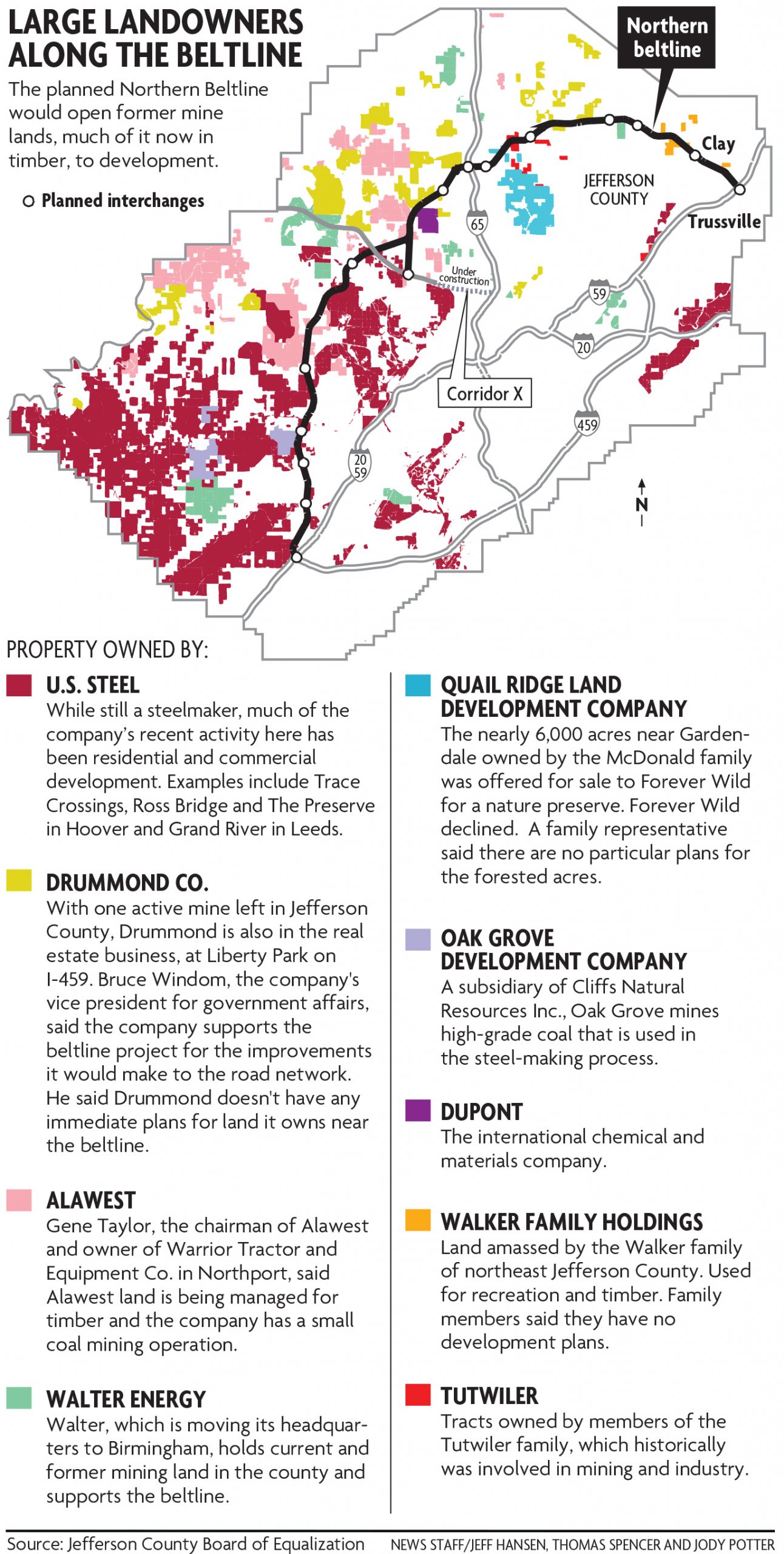Birmingham’s Northern Beltline ranks among nation’s worst road projects
Several recent hard-hitting pieces spotlighting Birmingham’s Northern Beltline have raised questions about who really stands to benefit from a destructive project with no real regional transportation benefits. Reinforcing these local and regional concerns also speaks to broader issues with lenient federal policies that have lead to a broken system, where some states end up prioritizing bad infrastructure investments over much more urgent transportation needs.
Earning a spot on the list of the nation’s worst road projects by GoBankingRate.com, the proposed 52-mile, 6-lane highway will cost taxpayers over $5 billion, or over $100 million per mile. Birmingham News columnist John Archibald puts the staggering price tag in perspective, noting that amount is twice the cost of the Apollo 11 mission that sent the first astronauts to the moon.
In addition to the cost, there is the issue of the timeline. If ever completed, the latest regional transportation plan shows the Beltline will take 75 years to complete while draining more than half of the available funds for metro Birmingham throughout its construction.
The Northern Beltline also was recently featured in the Center for American Progress’ “White Elephant Watch” series that illustrates the failure of national policies around transportation infrastructure. Highlighting the project’s numerous shortcomings, the profile points out that if evaluated by the Alabama Department of Transportation’s own goals to ensure that its choices “provide the best possible return on the capital investment,” the Northern Beltline is a total disaster.
Northern Beltline supporters—mostly wealthy landowners and developers who stand to gain from it financially—claim the federal funding mechanism dictates that Alabama must “use it or lose it” on this one project. But the mechanism changed in 2012 to allow ALDOT the flexibility to use the funding for transportation projects statewide.
Then when the Fixing America’s Surface Transportation (FAST) Act passed last week, inaccurate reports initially suggested the Northern Beltline will receive earmarked federal funding under the bill. A closer reading shows the additional $30 million allotted for Alabama can be used for transportation projects statewide, including developing transit options or much-needed maintenance of the state’s deteriorating roads.
As this project has continued to be pushed forward, SELC is in court on behalf of Black Warrior Riverkeeper calling for an updated environmental impact study, and to challenge a U.S. Army Corps of Engineers permit for the Northern Beltline’s first phase of construction. This case remains active and has not yet been decided.
- Read the Center for American Progress piece.
- Read Birmingham News’ columnist John Archibald’s column “Who gets rich from the Northern Beltline? Not you.”
- Read Archibald’s column “The 7th biggest boondoggle in the U.S. is Alabama’s.”

